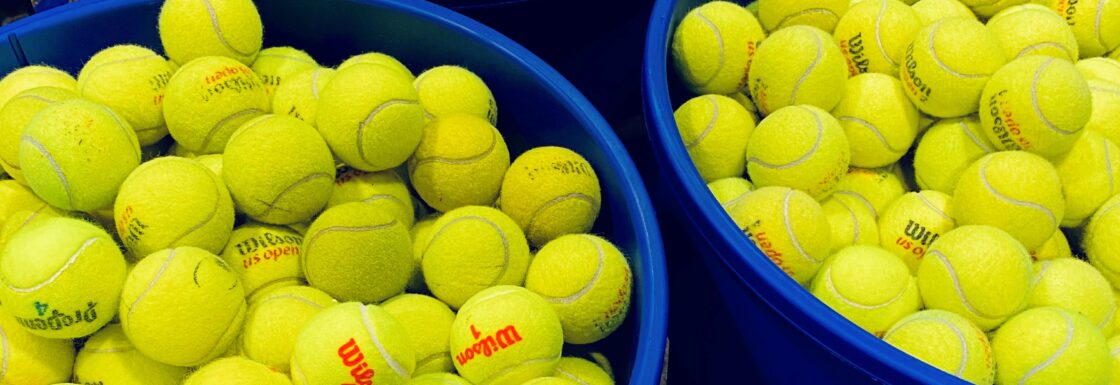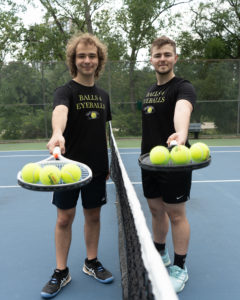Tennis Ball Recycling for Eye Research

Projects Sponsor
As avid tennis players, it bothered brothers Ethan and Cooper Waisberg, co-founders of Balls 4 Eyeballs that many players open a new can of balls each time they play. Wanting to challenge the game to be more sustainable, the pair lobbed a plan. Then they kept their eyes on the balls, 100,000 of them.
This non-profit serves to make wearing tennis whites greener while funding eye research. Together the brothers––with the help of the student volunteers they’ve inspired to rally––have kept 100,000 tennis balls out of landfills. That’s 12,500 pounds net of non-decomposable waste returned and given a second chance, which will benefit all of us down the line.

As lifelong tennis players who are concerned about climate change, Toronto brothers Ethan and Cooper Waisberg wanted to find a way to reduce the undeniably negative impact tennis has on the environment. Balls 4 Eyeballs is their vision. What struck the brothers during their hours on the court was how many players open a fresh can of tennis balls each time they play, disposing of the balls when they leave. Understanding that tennis balls take hundreds of years to decompose in landfills, the pair launched Balls 4 Eyeballs to keep the balls from landing there in the first place.
By engaging local tennis clubs, Balls 4 Eyeballs has been able to place convenient collection bins at 30 facilities and counting. These bins, along with the collection, sorting, and storing of the balls, as well as eventually reselling them, allows Balls 4 Eyeballs to turn would-be trash into a “let’s all see” asset.
Their grandmother’s recent glaucoma diagnosis and Ethan’s volunteer eye research in Canada, the U.K., and the U.S. inspired the brothers to direct all the proceeds from the ball sales towards helping to fund eye research in Canada. To date, Balls 4 Eyeballs has kept 100,000 balls which would have amounted to over 12,500 pounds of non-decomposable waste, out of landfills. The organisation’s efforts are raising awareness about the environmental harms of throwing away tennis balls and encouraging ball––now golf balls, as well as tennis balls––recycling on an even wider scale.
By doing the work and spreading the word, the organisation has been able to expand to more clubs. Partnering with schools to find student volunteers to help sort and pack the balls has helped to make the process more efficient.
Engaging these students in a green initiative, along with the tennis players themselves and of course the club owners and operators, will no doubt have positive repercussions well beyond the courts. This initiative benefits eye research, a cause close to Ethan and Cooper Waisberg’s hearts, is just part of what makes their efforts so meaningful.
The Balls 4 Eyeballs story is an inspiring answer to the question, “What can I do in the fight against climate change?”













